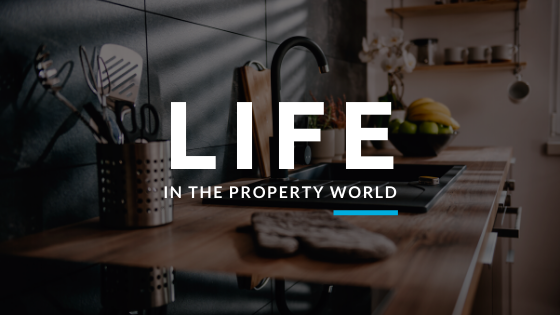|
Should You Sell Your Home during a Divorce?
When in the middle of a divorce, many different things will come to mind. One of the first things you might consider is whether or not you should sell your home. Sometimes, depending on the circumstances, you may not have a choice. In some situations, a judge may determine that you must sell your home and split the proceeds. Divorce and selling a home are most likely two of the most stressful, trying events that you’ll encounter. Going through both at the same time just flat out sucks! They can make the stress much, much higher than dealing with just one of the two life events by itself. Questions surrounding owning a home will become harder to deal with when you are facing a divorce. For many married couples their home is the largest asset they have, not to mention the sentimental value the home may have. Even though the owners may want to hang onto it, many times the situation demands selling the home. It may be because of financial, legal or personal reasons, but when all is said and done they are not left with any other option besides selling the home. It’s important to know how divorce affects the sale of a home, including the reasons for selling in the first place. Even though a divorce is emotionally trying, a bad move involving a home can end up affecting you negatively for years – long after the divorce is finalised… Most couples who go through a divorce end up going with one of these 3 options:
Selling a home while getting divorced is no doubt difficult and sensitive. Don’t underestimate the legal and any other number of ramifications. But with the help of a great solicitor, financial professional, and real estate agent, it can be done successfully. Read on for more: Legal Reasons For Selling a Home in Divorce Unless the divorcing couple can find a way to deal with each other amicably, the division of property and specifically the family home is not cut and dry. Each person contributed to the purchase of the home – which is almost never 50/50 – and naturally, each wants their fair share of the home’s equity. If the couple can’t arrive at an agreement outside of court, either on your own or through mediation with your solicitors, the court will decide for you. As you can imagine, this is not a pleasant experience for most homeowners. The judge hardly ever rules in a way that both parties are happy with. This is exactly why it is always advisable to come to an agreement before it gets in front of a judge, if at all possible. More often than not, the easiest solution is to sell your home and split the equity. Dividing the couple’s assets becomes much easier after selling the home because they’re not trying to determine a future value of the home, which will usually cause yet another argument. You can find out what your home is worth by hiring a registered valuer, or by calling a competent, knowledgeable local real estate agent (me!) who should be more than willing to value your home at no cost to you, and without obligation. Financial Reasons For Selling a Home During Divorce Selling your home during divorce obviously creates some important financial considerations. Because you were married, chances are that qualifying for your mortgage was taking into account both of your incomes. Once that income is cut in half, you quickly see why two incomes were necessary to pay for it. Even if your income is the higher of the two, the mortgage principal, interest, insurance, property rates, utilities, and the general upkeep of the home can quickly eat up all your money! It becomes too expensive for most people to handle on their own. Emotional Reasons For Selling a Home Divorce and selling a home often go hand in hand because of the emotional issues that usually follow when keeping the property. You have so many memories in your home, including raising children, pets and any renovations or improvements that you have done to make it yours. With the departure of your spouse, though, the once happy home can quickly become unpleasant to live in, sometimes even painful. Many people want to avoid these negative feelings and emotions that are totally normal during this tough time. This is usually why the spouse who kept the home may eventually feel that keeping the house was not as good of an idea as it sounded at the time of the divorce. It’s easy to look past, and even underestimate the emotional factors that exist. So many things go through your mind during a divorce that it’s easy to overlook how you may feel later on down the road. How To Sell Your Home During Divorce Selling a home during a divorce is very similar to selling real estate any other time… except that you MUST think about, talk about, and determine before the sale who gets what. Are you splitting the equity in the home after it sells? Is it a 50/50 split? Selling your home for fair market value will be possible when you hire a great real estate agent – as long as you actually follow your agent’s advice in regards to the strategy and specifics of selling around selling the home… This decision making process is also possibly where your solicitors need to be involved. Let them guide you both through the process of deciding who gets what. You’ll need to know what your home is worth as well as how much money you have put into the home in terms of improvements and/or renovations that may be needed as part of getting it ready for sale. Once this is decided, bring in your experienced, reputable real estate agent – one who you have hired based on interviews, credentials and who you both agree on – and get your house on the market. Follow your agent’s advice, and be willing to compromise a little bit to get the job done. Selling your home for a little less than what you might want will only help to get the home off your hands faster and help you both move on with your lives. For example, if pricing the home just under market value in order to sell, helped it sell 4-6 weeks faster, would that be worth it to you? Most people in a divorce situation would say Yes! The Agent You Pick Is Important Don’t underestimate the importance of picking the right agent to get you through this. When selling a home during divorce you will want to work with an agent that has exceptional communication skills, and experience navigating the sensitivities and intricacies of a divorcing couple. There’s a good chance that both parties might not exactly be getting along so well anymore, so you want to be sure to work with an agent who understands the nature of divorce and all the emotional baggage that can come with it. The agent you decide to hire will need to have a high level of patience, as many communications may need to be repeated multiple times to each party separately. . Do your best to decide on the agent together. This is very important! As a real estate agent who has worked with divorcing couples over my real estate career so far, I have found that if only one party chooses the agent, the other party will feel cheated, or that the agent will benefit one party more than the other. It’s human nature to worry that the real estate agent is going to play favourites because they may have more of a relationship with the other party. Whenever I’m brought in to represent a divorcing couple, I insist that both parties are present for interviews or pre-listing meetings occur. I want it to be crystal clear to them that I represent both of them equally. No taking sides, no playing favourites. Selling the home for as much as money as possible, in a reasonable amount of time, with the least amount of headaches is my top priority. It’s as simple as that. We need to begin by creating an environment of trust where either party can reach out to me at any time. In fact, the success or failure of selling the home in a timely manner depends on it. Divorce is stressful enough all by itself. Adding a home sale on top of it can make you feel like your head could explode at any moment. Reducing your stress by making the sale process go as smoothly as possible is always one of my goals. Think of it like this: You have a problem. The agent you hire is the problem solver. Your real estate agent should not only have some experience with selling homes during divorce, but also a strong track record of success. Selecting an agent is an incredibly important decision with wide reaching implications, yet so many sellers do not take the time needed to really make a smart decision. Don’t be one of these people. Choose wisely. Divorce and selling a home at the same time can be tricky. Make sure you are both well prepared, hire a great real estate agent, and follow their advice! After all, it’s only your piece of mind, sanity, and financial well-being that are at stake! When selling a home during divorce, you should always first consult with a solicitor, as well as a competent financial advisor to make sure both parties are going to be treated fairly, and understand the implications of all the decisions made in the sale of the property. I’m here to help. So if you’re thinking of selling your home, I have a real passion for selling Real Estate, as well as marketing & coffee!. I’d love to share my expertise! Get in touch any time - 021 606 460 or [email protected] Cheers, Paul
1 Comment
Selling a home is a stressful process, but it can be even more intense if the seller (you!) no longer live on the property.
What makes selling a vacant house so much more stressful? An empty property is a vulnerable target if you don’t look at some things that you can do so the property doesn’t appear to be so obviously empty... This also means that sellers have to take extra caution to ensure that the home remains in the best possible condition while marketing the property. Here are 7 pretty handy tips that one can use in order to make sure that selling an empty house goes smoothly: Tip No.1: Speak to the neighbours Inform the neighbours that your home is empty and up for sale, and make sure that they have your contact details. If you live in a neighbourhood that makes use of community watch or patrols, you can inform them that the house is empty as well. Perhaps requesting that the real estate agent who’s marketing the property checks in on the house from time-to-time is also a good idea. Tip No.2: Timers on lights Without undergoing a massive home improvement project, sometimes a great security feature is simply to add timers to the lights so that they automatically turn on in the evenings. It will give the idea that there’s someone at home and it will conserve energy during the day. There should be enough lighting for the inside and outside of your home. Consider investing in motion sensors for your exterior lights. Tip No.3: Install a security system If your home does not have a security system then it would be a good idea to have one installed. It will keep the home safe and increase its value. Security is a determining factor in the home buying process, so this can make buyers more likely to view your home in a positive light. Tip No.4: Stage the home A bare home looks less attractive to buyers, so an empty house doesn’t necessarily have to be completely empty. Buyers will want photos of the interior, so make sure that you take them before packing up the furniture. Alternatively, you can discuss the option of staging your home with the real estate agent to make sure the house looks at its best for interested home buyers! It would also be a good idea to keep a few small furniture pieces inside so it creates the impression that people still live there. Tip No.5: Secure entrances Securing entrances goes further than just locking the door: it means that you have to close the windows properly and bolt any glass doors. Pay close attention to any area in the home that might be easily accessible from the outside, such as garden access points, and invest in deadbolts for the doors. Tip No.6: Don’t leave mail or newspapers outside Piles of mail on the outside of the home is a dead giveaway that no one is home. Make sure that someone collects your mail on a very regular basis. Remember to also inform companies to divert your mail to your new address – this will eliminate the chances of your mailbox overflowing. Tip No.7: Maintain the home’s exterior An uncut lawn is another sign that no one is home. Even though no one is living there, make sure that the section is maintained. This will also enhance the street appeal which will be more attractive to potential buyers. I’m here to help. So if you’re thinking of selling your home, I have a real passion for selling Real Estate, as well as marketing & coffee!. I’d love to share my expertise! Get in touch any time - 021 606 460 or [email protected] Cheers, Paul If you’re planning on selling your home, the kitchen is a great place to start to add value. The kitchen is one of those spaces that can make or break the sale for many buyers, but before you make the decision to totally gut your kitchen and start again, here are some tips on how to get the best out of your existing kitchen without breaking the bank.
1. Ease and flow First ask yourself if your kitchen functions well or are there some things about it that have always driven you crazy. Is the pantry too small, is the dishwasher too far from the sink or the rubbish bin, is there never enough storage or are the cupboards too high? Consider whether moving an appliance or rejigging those cupboards could significantly improve the flow of your kitchen. Also, think carefully about what you are going to include as chattels in the kitchen. Anything difficult to replace that is a key part of the kitchen should be included in the sale if possible. 2. A good clean and a lick of paint One of the simplest ways to freshen up your kitchen is with a coat of paint. Keep it light, airy and neutral – be sure to pick a shade that works with your existing counters and cabinets. Ask for advice at your local paint shop or when in doubt, white is usually a safe bet. A professional clean is a worthwhile investment and should include ceilings and walls. Fly spots and food splatters are big detractors to an otherwise sparkling kitchen. 3. Update your hardware Updating your cupboards with new handles can give your kitchen a more contemporary feel, but make sure they are still in keeping with the overall style of the room. A country style kitchen with traditional wooden cupboards for example won’t suit the same hardware as a sleek minimalist kitchen. 4. Declutter storage spaces Make sure your cupboards and open shelves are clean, orderly and decluttered. Potential buyers will be looking inside your cupboards, and if they are overflowing it gives the impression that the storage space in your kitchen is inadequate. The same goes for the pantry. Pare back the contents until you have some open space on each shelf. Organise what’s left into a set of matching food storage containers rather than lots of open packets. To make space you may need to remove items from your pantry and store them in a box out of sight during open homes. 5. Let the light in Consider the lighting in your kitchen – you’re looking for that bright, airy feel. Good lighting will make your kitchen seem bigger, brighter and will make it more functional too. No one wants to cook or entertain in a dark, poorly lit kitchen. 6. Help buyers imagine it as their own Your kitchen may be very personal to you and your tastes, but now is the time to make it clean, simple and neutral. Buyers may not share your love of bright colours or ornate accessories. They’ll want to stamp their own personality on their new kitchen, so give them a clean canvas to work with if you want to appeal to a wide range of buyers. Cheers, Paul |
AuthorHelpful and interesting info from Paul & Harcourts to help you with your property journey. Archives
October 2023
Categories |
HoursAlways here for you
|
Telephone+6421 606460
|
|
We respect your inbox. We only send interesting and relevant emails.
Privacy PolicyREAA GuidesREINZ Info |
Optimize Realty Limited, Licensed Agent REAA 2008




 RSS Feed
RSS Feed
